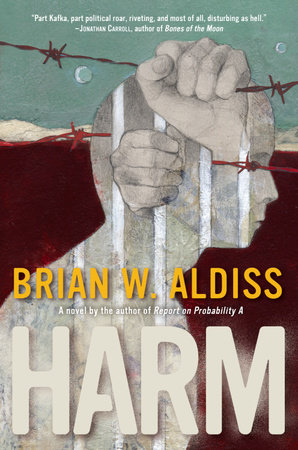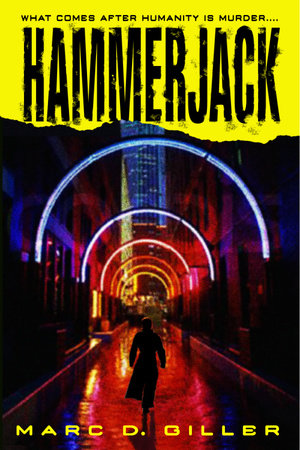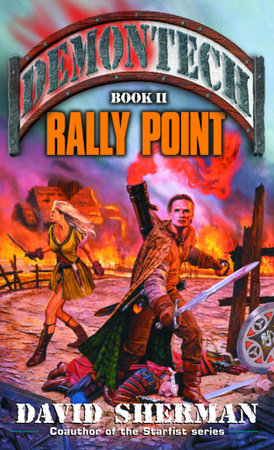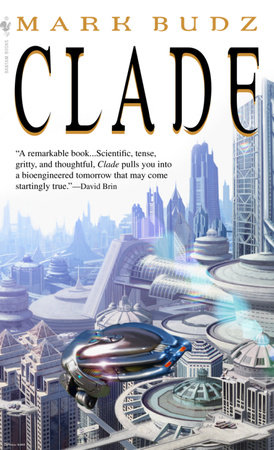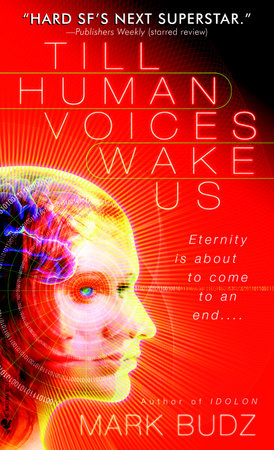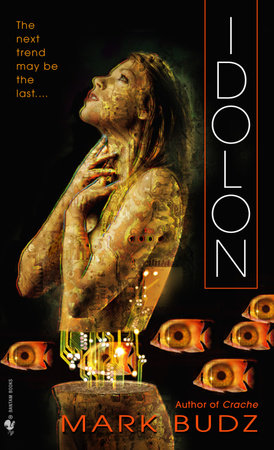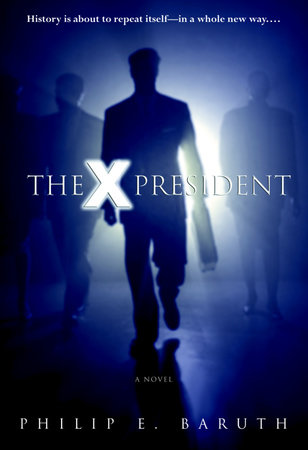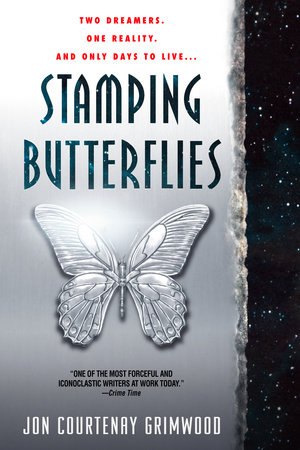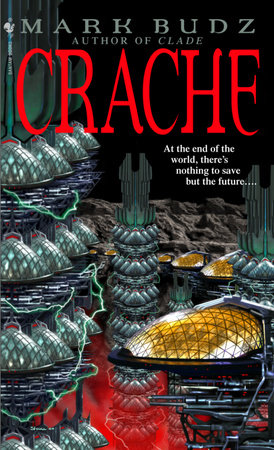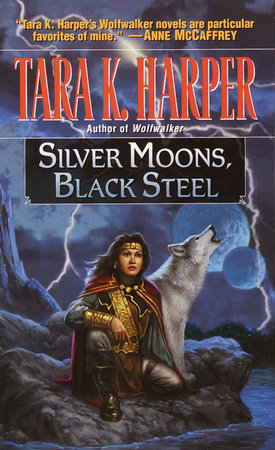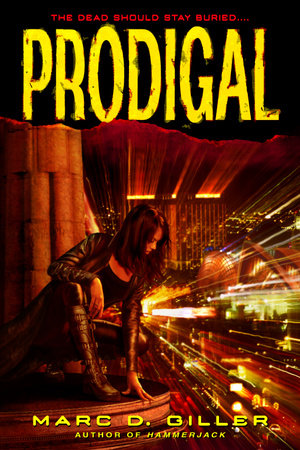Author Q&A
A conversation with HARM author Brian W. Aldiss
DEL REY: Science fiction has a tradition of dystopian novels that comment on current political events, Orwell’s 1984 and Bradbury’s Fahrenheit 451 being two of the most famous. Do you see HARM as being in that tradition?
BRIAN W. ALDISS: It never occurred to me. HARM is the sort of book I have been writing over the last half-century. Non-Stop, Greybeard, Forgotten Life, Super-State . . . all protest against something, generally against the shortcomings of human life itself. Of course I have read More, Brave New World, and all the rest of the famous utopias.
DR: Why choose science fiction as the genre in which to critique the way that governments have responded to 9/11? Doesn’t that risk diluting your message in ways that a realistic novel would not? For example, couldn’t critics dismiss your arguments by saying that HARM is a fantasy, its main character a man with a personality disorder?
BA: I take your point. I have nothing against the realistic novel, but I am more practiced at science fiction. If people read HARM as SF, they may dismiss it as “mere SF,” as they so often do. I don’t feel like that about SF–and some of the truths of my story may linger, even with the scoffers. To be made uneasy is the beginning of enlightenment.
DR: Why did you choose to give your character this mental illness–was it simply a technical move, to better facilitate the translation back and forth between the two main realities of the novel: Earth and the insect-dominated world of Stygia?
BA: My character Paul’s divided personality suffers another division: trouble is that he “presumes” to write a Wodehousian kind of novel. I believe that in the end he perceives he would have been better to accept the fact that he could be both British and Muslim (a question radiating some unease on both sides just now).
DR: One element of the novel I especially enjoyed was all the nods to the history of SF, from the pure pulp to the literary, that contribute to the reconstituted culture of Stygia. There’s the name itself, with its echoes of Robert E. Howard, but also places like Seldonia and characters such as Tolsteem. And of course this breaking down and reconstituting the past of the genre into humorous and often ironic permutations is also present on deeper levels. It’s obvious that you got a lot of pleasure out of this aspect of what is otherwise a very dark book.
BA: Stygia as a name comes from Milton’s Paradise Lost (a poem quoted later). There some can be simultaneously almost-alive and almost-dead–rather similar to Paul’s situation. Of course, Paul’s character is such that torture–which he perceives to be unjust–facilitates his refuge in another place, if indeed it is a refuge. On Stygia too, as on Earth, there is religious struggle.
As far as I recall, I have never read any Robert Howard–a possible character defect–although of course I have read in his tradition. In that tradition, there are generally monsters to contend with. Contending with insects is even worse, certainly more itchy. Don’t forget that literature derives not only from other literature but from life itself. I spent many years in the wilds of the East, wherein itchiness was a prominent feature of
existence.
DR: As you point out, there are Miltonic echoes and allusions in the book. Why is Milton an important writer to you, especially in connection with HARM?
BA: Every author owes obeisance to some other writer or writers. I have reviewed well over a thousand books. Unfortunately, I arrived too late to review Paradise Lost (“Unputdownable,” I might have said). But I have read and admired the mighty poem–as did Mary Shelley. Does it lend a certain grandeur to one’s imagination? You tell me.
DR: How much is the main character, Paul Fadhil Abbas Ali, an alter-ego for Brian Aldiss? The similarity of names seems purposeful . . .
BA: Goodness, I hope Paul is no sort of alter-ego for me! It is true that when I returned to England after that long adolescent sojourn overseas, I had become a stranger in my own country. But for all that . . . no, no.
DR: How close are the England and America of today to the totalitarian near-future that you depict in HARM? And are those two countries marching more or less in lockstep toward that future?
BA: I do not accept that England and America are totalitarian. One addresses the public in the belief that they will consciously heed our dreadful sins and–if possible–cure them. Or get voted out. We cannot, I believe, ever break free of our relationship, U.S. and U.K., mainly because of the remarkable language we share. Then there’s the other thing about the child being father to the man . . . You now have the Democrats sitting in the seats of the mighty. Perhaps you can make amends for that terrible mistake of invading Iraq–and we for that more humiliating mistake of blindly following your president, the Burning Bush, into that unfortunate land.
DR: For the edification of Americans like me, why did Tony Blair embrace the mission of George Bush with such fervor?
BA: Only reluctantly do I cease to admire Tony Blair. He did much that was good for Britain. He was debonair. He sank millions into the National Health Service. He was as much Middle England as Socialist. Did the adulation of the many go to his head? Most likely that wise saying of Lord Elton applies: “Power corrupts, absolute power corrupts absolutely.” Perhaps he saw in Bush the absolute power he could not help craving. In any case, he became a poodle. Now his popularity drains fast away. We wait wearily to see what he will get up to vis-a-vis the Democrats.
DR: In HARM, the writer Paul Fadhil Abbas Ali is arrested because his novel, The Pied Piper of Hament, contains a joke about the assassination of a British Prime Minister. As a British citizen of Muslim heritage, Paul is suspected of connections with Islamic terrorists. I’m wondering if this aspect of your novel, the assassination of a prime minister, has drawn any attention from the British authorities.
BA: Sadly the national atmosphere has become tainted with suspicion. Paul jokes about assassinating the PM to show how far he is from such actions–fatally, of course. (A new report claims that 1,600 young British Muslims are being radicalized and are under surveillance.) Have British authorities taken any notice of my book? No way.
DR: What is the significance of that title, The Pied Piper of Hament? Although it is not described in detail, Paul’s novel seems somewhat similar to HARM, in that it is a fantasy with dual realities; another level of recursiveness in your book.
BA: Agreed about recessive realities. There is no particular significance in the title beyond the Browning reference and the fact that rats follow the piper.
DR: Paul is swept up on the flimsiest of pretexts, then subjected to torture that is made even more abhorrent by the vile racism of his interlocutors. Yet isn’t there a real danger to the West from Islamic terrorists? Where should the line be drawn in responding to this threat?
BA: Paul arrested on the flimsiest of pretexts? But paranoia is the last refuge of a scoundrel; they may have had Paul under surveillance for some while. The novel opens with our knowing nothing about Paul. As I write, in the UK it’s the day of the Lord Mayor’s show, with many acts and groups on show (including the formidable Knights of Kazakhstan!) parading through a sunny London and the sidewalks crammed with thousands of people. How tempting a target for some mad terrorist with a few pounds of explosives strapped round his chest . . . Where indeed should a line be drawn?
DR: Were the brutal interrogation scenes of Paul difficult to write?
BA: I enjoyed writing the torture scenes. Possibly prophylactic! I have studied various torture procedures. It has been a European tradition ever since the rack was introduced.
DR: The science fiction elements of HARM are startling and brilliant, beginning with the notion that the colonists of Stygia have been transported to that planet with their brain functions and DNA stored in LPRs, or Life-Process Reservoirs, and then reconstituted upon arrival in new amalgamations of their previous physical and mental identities. It’s as if they’ve been disassembled, the pieces put into boxes that are shaken up thoroughly, and then put back together willy-nilly. How did you come up with this outrageous idea?
BA: Cogitating on the question of transportation over many light years, I came on what seemed to me almost the only solution: to store the individual lives in LPR’s. When you think around such ideas, they take on a fake reality; I thought this was the best strategy. Of course it served to break up families and other relationships. The new Stygians are virtually computer compositions (Bellamia expresses some anxieties on this very point). In particular, humans may survive, but the old constitutions and relationships, such as families–the elements that hold our fragile world-ethic together–are destroyed by this long storage.
DR: Perhaps unsurprisingly, given this treatment, most of the reconstituted colonists have suffered degrees of brain damage, making their speech word-salads of malapropisms and unconsciously ironic puns. The sheer linguistic dexterity of this reminded me of the delirious Joycean wordplay that characterized your novel Barefoot in the Head.
BA: All survivors from the ship are damaged in some way. Wisely perhaps, I was advised to cut down on the disintegration of language.
DR: Three of your works have been adapted for film: the shortstory “Supertoys Last All Summer Long” as Spielberg’s A.I.; the novel Frankenstein Unbound as Roger Corman’s movie of the same name, and Brothers of the Head, also given eponymous movie treatment. Have you been pleased with these adaptations? Which is your favorite? And are there any more films in the works?
BA: When you sell a written something-or-other to Hollywood, you should accept that a translation must be made. You have no power over this transformation. Hence the old saying, “Take the money and run.” I didn’t run. My family and I went to stay in Bellagio on the shores of Lake Como in Italy, to watch the filming. Roger Corman was a genial and generous host. Most of the film, shot in a local palazzo, looks beautiful. There is much to be said for Frankenstein Unbound.
I worked with Stanley Kubrick on Supertoys, but wanted us to create a new modern myth. Kubrick was set on Pinocchio, whereas I could not accept the Blue Fairy (the mere name gave me the whim-whams) or the notion of David somehow becoming a real boy. In the end, Stanley had to kick me out. I don’t regret that semi-collaboration; it is a privilege to work with a genius, even a genius in decay. But much of the screenplay of what became A.I. is illogical and vulgar.
For sheer noise, Brothers of the Head beats them all, but holds many fascinations. This company, Marlin Films, with its remarkable screenwriter, Tony Grisoni, have made mocumentaries before. The book of Brothers is written in mocumentary style, and thus was comparatively easy to transform to film in like fashion. Not believing in God–a weird idea–I always worry about his imitation, an omniscient narrator in books; so that Brothers is written, like the later White Mars, by various witnesses. And where did that strategy originate? You can find it in R.L. Stevenson’s Dr. Jekyll & Mr. Hyde.
DR: HARM is also concerned with the link between religious belief, oppression, and violence. Recently Richard Dawkins has written a critique of religious belief, expressing the opinion that, in the post-9/11 world, the dangers of this belief (or if you prefer, faith) far outweigh any benefits. Nor is he referring simply to Islam. Can you address this aspect of HARM?
BA: Oxford is a city attracting many intelligent people. We have multi-culturalism here without too much hassle about it. No ghettos, for instance. I am fascinated by the foreign, and talk to many people in streets and shops. It’s a privilege of age to do so without giving offence. I like or love many people. Yet I regard us humans as a bad lot. Perhaps tribalisms of various kinds form part of the problem. There is a depressing sense of Untergang des Abendlandts. And yet, and yet . . . Here in Europe we are undergoing an unique social experiment, the European Union.
Religion, coupled with territorial and dynastic additives, have in the past soaked the soils of Europe with blood from one end to the other; now we sit round a table in Brussels and argue out our differences. Reason has spurred this revolution, not religion.
DR: Dawkins is of course a champion of pure science. But in HARM, science does not come off much better than religion, at least in such proponents as Tolsteem and Safelkty.
BA: I admire Richard Dawkins, who was born with many gifts, and have spoken to him about the novel I am currently writing. The humans on Stygia are in part ruined by technology. You can’t have better dentistry without dropping an atomic bomb first, you have to go through electronic typewriters to get to the bliss of an iPod, you can’t eat strawberries in the winter without over-warming the world . . . Like the incoming tide, science advances on all fronts. Stygian science is mostly forbidden. It is given no chance to develop on the barbaric insect planet.
DR: In many novels with this kind of dual structure, the fantastic world functions as a utopian escape from a less-pleasant reality. But in HARM, that is not the case; in fact, the fantastic world recapitulates the “real” world in disturbing ways, not the least of which is the extermination of the indigenous intelligent species of Stygia. I was wondering how much your wartime experiences in Burma contributed to your devastating portrait of a “new” civilization arising on Stygia from the fragments of the old?
BA: Burma illustrates my previous point. On leaving Burma, the British erected a memorial with an epigram carved into the stone. It read: When you go home, think of us and say For your tomorrow we gave our today. I like the sentiments, but who are these you’s for which we gave our today? The country once known as the Rice Bowl of Asia now lives on hand-outs, while the lives of ordinary people are prison sentences. As you seem to know, or to guess, Burma somehow always remains in mind, whatever else gets forgotten.
DR: Following is a quote from the last interview I had the pleasure of conducting with you, back in 2000, in connection with White Mars. Perhaps the further evolution of humankind does require some sort of collaboration; at present almost a quarter of humanity is disenfranchised, starved, exploited. Could we not do better? Why does pity not move us? These are questions worth asking. I have no great faith in utopia’s ever being established, but questions must be posed now and again. Could we not do better? Is not the West at present in a position to do better? How do these words resonate for you today? White Mars, which, like HARM, features an attempt to build a utopia on another world, seems a much more hopeful book than this one. Have you become more pessimistic about humanity’s future?
BA: I have become less optimistic about today. Many people have taken refuge in Britain from dirty, dusty villages in the Middle East. They neither know nor understand the West. Consequently, many would destroy it. They have never heard of that ancient piece of sound advice: “When in Rome, do as the Romans do.”
DR: I know you’ve been hard at work on a new novel, Walcot. What can you tell us about that?
BA: Walcot is the story of a family living throughout the twentieth century. Great world events mingle with small family affairs. It is a narrative very hard to get “right.” It took me three long years to compose. I wrote draft after draft, sometimes laughing, often driven to tears. So far, it has brought me not a penny–nor was there a financial reason for writing it. I just wanted to say things that had eluded speech. Of course, it is an English family. What else do I know? You don’t happen to know an anglophile American publisher who might be interested, do you?
DR: I wish I did! It’s incomprehensible to me that a writer of your proven gifts and stature could have difficulty placing a novel. Does this discourage you? Do you ever think about retiring? You seem more productive in your eighties than most writers half your age!
BA: No, I do not plan to retire. I enjoy the thought-adventure of writing. On the whole, I find that being eighty is more pleasant than being adolescent. I was encouraged by the award of an O.B.E., which made me think that someone must have been listening. True, a few aches and pains accumulate, but you can edit those out, on the whole. Every day, when awakening, you think what a surprise and joy it is still to be here, some wits remaining, and–with luck–still being published.
